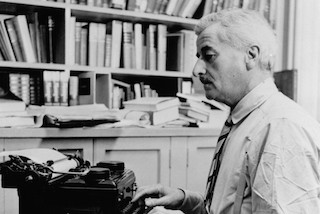Prólogo de Elie Wiesel
La muerte y la doncella, la obra latinoamericana mis representada en la historia del mundo, ha llegado a constituirse en un clásico sobre la justicia y el perdón, la memoria y el olvido. Ariel Dorfman se ha propuesto a explorar preguntas pocas veces hechas en voz alta: "¿Cómo pueden los represores y los oprimidos cohabitar una misma tierra, compartir una misma mesa?" preguntas que hoy día siguen tan vigentes como cuando Dorfman escribia esta obra.
Does America Deserve to Survive?
Does America deserve to survive?
That's the question William Faulkner asked himself after the 1955 murder of Emmett Till, and that's the question Ariel Dorfman has found himself wondering in 2016, during his pilgrimage to Faulkner's hometown of Oxford, Mississippi.
So much and so little has changed, it seems to Dorfman, who pondered what Faulkner might have made of todays's America in a recent Atlantic essay.
For one thing, Dorfman sees Donald Trump as a hypertrophied version of recurring Faulkner villain Flem Snopes, the mountebank-in-chief of Frenchman's Bend, Mississippi, a fictional Faulkner town.

Of course there are many Americas, as Ariel Dorfman knows well, and likely there are some vantage points the cagey southern author and Dorfman would not share. But Dorfman understands well that Faulkner wouldn't have simply thumbed his nose at today's Trump supporters, as do so many 2016 intellectuals. "Faulkner would have understood," Dorfman writes, "the roots of the present disaffection of those people he cared for so much and the fear from which that disaffection derives, the feeling that they are trapped in a historical tide not of their making, their American dream gone berserk."
No one likes it when their dream convulses and dies. It may be, then, that if America is to survive, we'll have to invent another American dream, or another America. And the imaginative work of Ariel Dorfman is a great start.















